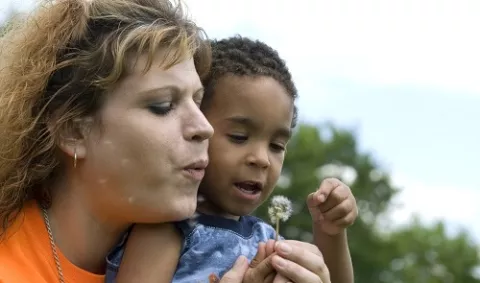Put Your Love to Work

The children you foster will always know someone cared enough to step forward to help them during a time of transition.
Foster parents come from all backgrounds and family structures but people who provide nurturing, supportive foster care tend to share some common traits:
- They enjoy working with children.
- They’re empathetic to children’s circumstances and open to understanding the child in their care.
- They’re eager to participate in a child’s activities, education and development.
- They’re willing to commit time and energy to supporting a child with therapeutic needs.
- They have some flexibility with their schedules and space in their homes.
Foster Parent Commitments
Foster a Nurturing Home Environment
Successful foster care placement depends on foster parents who use patience and compassion to create a safe, supportive and stable environment where children can thrive. Along with providing children with basic needs, foster parents ensure children have access to educational services and medical care, and facilitate community and extracurricular activities.
Provide Support & Coordination of Services
Children in Therapeutic Foster Care may have several appointments each week for therapy, meetings with LSS team members and visits with family. Foster parents are responsible for making sure children in their care get to these appointments, and may have to provide other supports like higher levels of supervision or behavioral modification plans.
Provide Culturally Appropriate Connections & Opportunities
Preserving children’s racial, ethnic and cultural heritage is crucial to their sense of well-being, especially when placed outside of their families’ homes. LSS works closely with foster parents, the state, tribes and other community organizations to maintain those connections. This includes supporting a child’s spiritual, racial, ethnic, and personal identity as well as ongoing contact or communication with the child’s primary family as needed.
Take Advantage of Training & Support
We want you to feel confident in your role as a foster parent. To ensure the best outcomes for both children and foster parents, LSS provides the required training for foster care licensing as well as on-going training and support after a child is placed in your home.
Participate as an Integral Part of Your Foster Child’s Care Team
When you become a foster parent, you join a team of LSS professionals, county social workers and therapists working together toward the best outcomes for the child in your care. This team will meet quarterly to evaluate and adjust the therapeutic foster care plan.
Embrace the Rewards & Challenges
As a new foster parent, you may struggle with challenges like time management or addressing potential behavioral needs. Foster parenting offers the satisfaction of watching a child develop new skills and confidence, the excitement of engaging in their interests and the joy of giving hope to children in need.
If fostering feels right for you, contact an LSS foster care coordinator to learn more about become a foster parent or complete a Foster care interest form.

